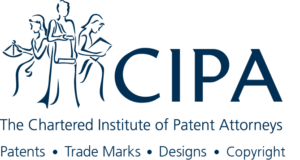What is a patent?
How can you protect an invention? We asked our friends at The Chartered Institute of Patent Attorneys to share their guidance.

Patents protect inventions from being used or sold without the owner’s permission.
A patent gives you a monopoly right to take legal action to stop any competition to your invention for a limited period, normally 20 years.
In short, a patent gives you a legal reassurance that, if you are considering expending time and money to commercially develop an idea, someone else cannot take your hard work and copy it.
Patents can become extremely valuable and can be licenced to another company; sold or used to attract investment.
To get a patent you must show that your invention is:
- new
- something that can be made or used in some kind of industry
- not a simple modification of something that already exists
Patents are generally used to protect the way something works, what it is made from, what it is used for or what it does.
Strong, successful businesses use patent protection to continually innovate and grow. Profits generated by patents will be used to finance research and development into new ideas that will, in turn, be patented to strengthen their market position.
If you are considering seeking a patent, here are some key points to remember:
- Don’t tell anyone! Don’t make the details of your invention public as this will make it impossible to get protection in the first place
- Do some research to establish whether or not your idea really is new
- Patents are not kept secret - they are published, usually 18 months after application
- Get professional advice
People can become so involved in the technical processes of their business that they fail to realise how clever their idea is. Your invention may seem insignificant to you, but it could be of huge benefit to the wider world - and help you improve your profit margin. A Chartered Patent Attorney can advise you.
Also, the process of obtaining a patent can be complicated. The UK Intellectual Property Office says that only one in 20 applicants get a patent without professional help.
A Chartered Patent Attorney will help you consider your ideas - your intellectual property - as part of your business strategy so that you can gain maximum competitive advantage.
The vast majority of UK patent attorney firms offer basic advice for free. You could also attend an intellectual property clinic and receive free advice from a member of the Chartered Institute of Patent Attorneys (CIPA).
CIPA holds free clinics at various locations around the UK.
To find a firm near you, search CIPA’s directory of Chartered Patent Attorneys.
Some people believe that patents are pointless unless you have the finances to enforce them. But the majority of patents are not used in court. If you have patent protection this will be visible to your competitors and will act as a strong deterrent.
Also, new courts and pro bono schemes have placed patent litigation within the financial reach of many small firms by significantly reducing potential financial exposure.
You can also gain tax relief through your patents. The Patent Box scheme offers reduced tax rates on profits from products and services covered by patents. To qualify, your company must have made a significant contribution to either the creation or development of the patented invention, or a product incorporating the invention.
For more information on patents visit the websites of CIPA and the UK Intellectual Property Office.


